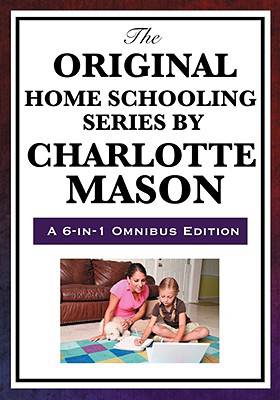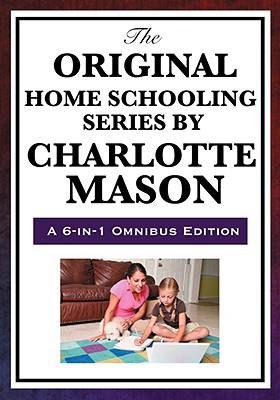
- Afhalen na 1 uur in een winkel met voorraad
- Gratis thuislevering in België
- Ruim aanbod met 7 miljoen producten
- Afhalen na 1 uur in een winkel met voorraad
- Gratis thuislevering in België
- Ruim aanbod met 7 miljoen producten
Omschrijving
Charlotte Mason's ideas were far ahead of her time. She believed that children are born persons worthy of respect, rather than blank slates, and that it was better to feed their growing minds with living literature and vital ideas and knowledge, rather than dry facts and knowledge filtered and pre-digested by the teacher. Her method of education is gentle and flexible, especially with younger children, and includes first-hand exposure to great ideas through books in each school subject, conveying wonder and arousing curiosity through reflection upon great art, music, and poetry; nature observation as the primary means of early science teaching; use of manipulatives and real-life application to understand mathematical concepts and learning to reason, rather than rote memorization and working endless sums; and an emphasis on character and on cultivating and maintaining good personal habits. Schooling is teacher-directed, not child-led, but school time should be short enough to allow students free time to play and to pursue their own interests. Traditional Charlotte Mason schooling is firmly based on Christianity, although the method is also used successfully by secular families and families of other religions. Here in one affordable volume is her complete Homeschooling Series:
Home Education: Six lectures by Charlotte Mason about the raising and educating of young children (up to the age of nine), for parents and teachers. She details how lessons in various school subjects can be done using her approach. She concludes with remarks about the Will, the Conscience, and the Divine Life in the Child, Parents and Children: A collection of 26 articles from the original Parent's Review magazines to encourage and instruct parents.
School Education: Thoughts about the teaching and curriculum of children aged 9-12, either at school or at home.
Ourselves: A character curriculum book written directly to children. Book I, Self-Knowledge, is for elementary school students; Book II, Self-Direction, is for older students. Formation of Character: Includes case studies of children (and adults) who cured themselves of bad habits; reflections on subjects including both schooling and vacations (or "stay-cations" as we now call them); various aspects of home schooling, with a special section detailing the things that Charlotte Mason thought were important to teach to girls in particular; and examples of how education affected outcome of character in famous writers of her day.
Towards a Philosophy of Education: Charlotte Mason's final book, written after years of seeing her approach in action. This volume gives the best overview of her philosophy, and includes the final version of her 20 Principles. This book is particularly directed to parents of older children, about ages 12 and up, but is a valuable overview for parents of younger children as well, covering both theory and practice.
Formation of Character: Includes case studies of children (and adults) who cured themselves of bad habits; reflections on subjects including both schooling and vacations (or "stay-cations" as we now call them); various aspects of home schooling, with a special section detailing the things that Charlotte Mason thought were important to teach to girls in particular; and examples of how education affected outcome of character in famous writers of her day.
Towards a Philosophy of Education: Charlotte Mason's final book, written after years of seeing her approach in action. This volume gives the best overview of her philosophy, and includes the final version of her 20 Principles. This book is particularly directed to parents of older children, about ages 12 and up, but is a valuable overview for parents of younger children as well, covering both theory and practice.
Specificaties
Betrokkenen
- Auteur(s):
- Uitgeverij:
Inhoud
- Aantal bladzijden:
- 812
- Taal:
- Engels
Eigenschappen
- Productcode (EAN):
- 9781604594386
- Verschijningsdatum:
- 1/08/2008
- Uitvoering:
- Hardcover
- Formaat:
- Genaaid
- Afmetingen:
- 178 mm x 254 mm
- Gewicht:
- 1610 g

Alleen bij Standaard Boekhandel
Beoordelingen
We publiceren alleen reviews die voldoen aan de voorwaarden voor reviews. Bekijk onze voorwaarden voor reviews.












